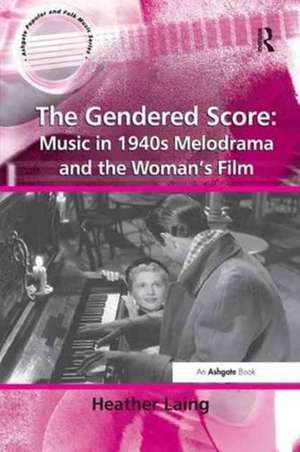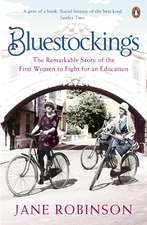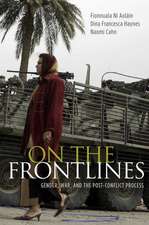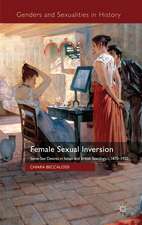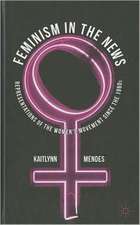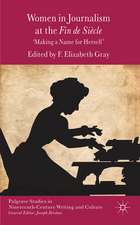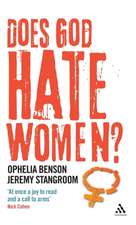The Gendered Score: Music in 1940s Melodrama and the Woman's Film: Ashgate Popular and Folk Music Series
Autor Heather Laingen Limba Engleză Paperback – 15 noi 2016
| Toate formatele și edițiile | Preț | Express |
|---|---|---|
| Paperback (1) | 489.26 lei 6-8 săpt. | |
| Taylor & Francis – 15 noi 2016 | 489.26 lei 6-8 săpt. | |
| Hardback (1) | 1054.71 lei 6-8 săpt. | |
| Taylor & Francis – 23 noi 2007 | 1054.71 lei 6-8 săpt. |
Din seria Ashgate Popular and Folk Music Series
-
 Preț: 324.20 lei
Preț: 324.20 lei -
 Preț: 355.22 lei
Preț: 355.22 lei -
 Preț: 296.85 lei
Preț: 296.85 lei -
 Preț: 310.96 lei
Preț: 310.96 lei -
 Preț: 309.59 lei
Preț: 309.59 lei -
 Preț: 310.14 lei
Preț: 310.14 lei - 8%
 Preț: 397.49 lei
Preț: 397.49 lei -
 Preț: 296.55 lei
Preț: 296.55 lei -
 Preț: 326.55 lei
Preț: 326.55 lei -
 Preț: 382.57 lei
Preț: 382.57 lei -
 Preț: 401.86 lei
Preț: 401.86 lei - 8%
 Preț: 382.77 lei
Preț: 382.77 lei -
 Preț: 311.41 lei
Preț: 311.41 lei - 9%
 Preț: 937.14 lei
Preț: 937.14 lei -
 Preț: 401.92 lei
Preț: 401.92 lei -
 Preț: 322.25 lei
Preț: 322.25 lei - 18%
 Preț: 1056.14 lei
Preț: 1056.14 lei - 15%
 Preț: 698.03 lei
Preț: 698.03 lei - 18%
 Preț: 1060.25 lei
Preț: 1060.25 lei - 18%
 Preț: 1113.91 lei
Preț: 1113.91 lei - 31%
 Preț: 764.20 lei
Preț: 764.20 lei - 31%
 Preț: 767.07 lei
Preț: 767.07 lei - 18%
 Preț: 1004.20 lei
Preț: 1004.20 lei - 18%
 Preț: 1113.12 lei
Preț: 1113.12 lei - 18%
 Preț: 1000.27 lei
Preț: 1000.27 lei - 18%
 Preț: 1000.27 lei
Preț: 1000.27 lei - 12%
 Preț: 259.07 lei
Preț: 259.07 lei - 18%
 Preț: 1001.87 lei
Preț: 1001.87 lei -
 Preț: 410.50 lei
Preț: 410.50 lei - 18%
 Preț: 1118.46 lei
Preț: 1118.46 lei -
 Preț: 383.67 lei
Preț: 383.67 lei - 18%
 Preț: 1004.20 lei
Preț: 1004.20 lei -
 Preț: 416.22 lei
Preț: 416.22 lei - 16%
 Preț: 241.49 lei
Preț: 241.49 lei - 18%
 Preț: 1054.71 lei
Preț: 1054.71 lei -
 Preț: 348.87 lei
Preț: 348.87 lei - 18%
 Preț: 1007.48 lei
Preț: 1007.48 lei - 16%
 Preț: 261.82 lei
Preț: 261.82 lei - 13%
 Preț: 321.56 lei
Preț: 321.56 lei - 25%
 Preț: 498.15 lei
Preț: 498.15 lei - 18%
 Preț: 1001.84 lei
Preț: 1001.84 lei - 18%
 Preț: 1056.47 lei
Preț: 1056.47 lei - 18%
 Preț: 1109.18 lei
Preț: 1109.18 lei - 18%
 Preț: 1053.47 lei
Preț: 1053.47 lei - 18%
 Preț: 1056.63 lei
Preț: 1056.63 lei
Preț: 489.26 lei
Nou
Puncte Express: 734
Preț estimativ în valută:
93.63€ • 97.39$ • 77.30£
93.63€ • 97.39$ • 77.30£
Carte tipărită la comandă
Livrare economică 14-28 aprilie
Preluare comenzi: 021 569.72.76
Specificații
ISBN-13: 9781138264731
ISBN-10: 1138264733
Pagini: 210
Dimensiuni: 156 x 234 x 11 mm
Greutate: 0.45 kg
Ediția:1
Editura: Taylor & Francis
Colecția Routledge
Seria Ashgate Popular and Folk Music Series
Locul publicării:Oxford, United Kingdom
ISBN-10: 1138264733
Pagini: 210
Dimensiuni: 156 x 234 x 11 mm
Greutate: 0.45 kg
Ediția:1
Editura: Taylor & Francis
Colecția Routledge
Seria Ashgate Popular and Folk Music Series
Locul publicării:Oxford, United Kingdom
Cuprins
Contents: Introduction; The siren and the muse: ideas of gender, emotion and subjectivity in music and film; Music and the voice in the woman's film; The female listener; The female musician; The male musician; Notes; Bibliography; Filmography; Index.
Notă biografică
Heather Laing is a freelance lecturer and writer and an Associate Tutor in Film Studies. She is the author of Gabriel Yared's The English Patient: A Film Score Guide, 'Emotion by Numbers: Music, Song and the Musical' in Musicals: Hollywood and Beyond, ed. Bill Marshall and Robynn J. Stilwell (Intellect, 2000) and 'The Rhythm of the Night: Reframing Silence, Music and Masculinity in Beau Travail' in European Film Music, ed. Miguel Mera and David Burnand.
Recenzii
’A pathbreaking study... Heather Laing’s book represents an important achievement in the nascent area of gendered study of film music. It is certain to spur further work and belongs on the shelf of scholars of film music and of gender.’ Music and Letters ’The Gendered Score is an excellent book... [an] enlightening study of a genre in which male and female characters' emotions - and our responses to their psychological trials - are constructed via subtle musical and extra-musical teams.’ Popular Music ’...this book offers a new approach to reading film music in relation to gender... you are set for an exciting, informative [...] read.’ Studies in Musical Theatre
Descriere
Heather Laing examines, for the first time, the issues of gender and emotion that underpin the classical style of film scoring, but that have until now remained unquestioned and untheorized, thus providing a benchmark for thinking on more recent and alternative styles of scoring. Case studies of specific films provide textual and musical analyses, and the genres of melodrama and the woman's film have been chosen as representative not only of the epitome of the Hollywood scoring style, but also of the narrative association of women, emotion and music. Laing leads to the conclusion that music functions as more than merely a signifier of emotion. Rather, it takes a crucial role in both indicating and determining how emotion is actually understood as part of the construction of gender and its representation in film.
